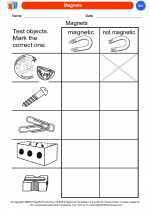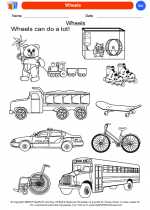Space Exploration
Space exploration is the investigation of outer space using space technology. It encompasses the discovery and exploration of celestial structures in the outer space, such as stars, planets, moons, comets, and asteroids. Space exploration also involves the study of the universe beyond Earth's atmosphere.
Why is Space Exploration Important?
Space exploration is important for several reasons:
- Scientific Discovery: It helps us understand the origins and evolution of the universe, as well as the formation of galaxies, stars, and planets.
- Technological Advancements: It drives the development of new technologies that have practical applications on Earth, such as satellite communication, weather forecasting, and medical imaging.
- Potential for Human Settlement: It provides insights into the possibility of human colonization of other planets and celestial bodies in the future.
- Understanding Earth: It helps us learn more about our own planet by studying other celestial bodies and phenomena.
Key Moments in Space Exploration History
Some key moments in the history of space exploration include:
- 1957: The Soviet Union launches the first artificial satellite, Sputnik 1, into space.
- 1961: Yuri Gagarin becomes the first human to journey into outer space.
- 1969: The United States successfully lands the first humans, Neil Armstrong and Buzz Aldrin, on the Moon as part of the Apollo 11 mission.
- 1977: NASA's Voyager 1 and Voyager 2 spacecraft are launched to explore the outer planets of our solar system and continue into interstellar space.
- 2004: The Mars Exploration Rovers, Spirit and Opportunity, land on Mars and begin their missions to study the planet's surface and geology.
- 2020: NASA's Perseverance rover successfully lands on Mars, with the goal of studying the planet's habitability and seeking signs of past microbial life.
Studying Space Exploration
When studying space exploration, it's important to focus on the following aspects:
- History of Space Exploration: Learn about the major milestones, missions, and achievements in space exploration.
- Technology and Engineering: Understand the spacecraft, telescopes, and instruments used for space exploration, as well as the engineering challenges involved.
- Planetary Science: Explore the geology, atmospheres, and potential habitability of other planets and moons in our solar system.
- Astronomy and Cosmology: Study the broader concepts of the universe, including galaxies, cosmology, and the search for extraterrestrial life.
- Future of Space Exploration: Consider the current and future missions planned for exploring space, including manned missions, robotic exploration, and the potential for space tourism.
◂Science Worksheets and Study Guides Kindergarten. Pushing, Moving, Pulling
Coloring Worksheet How heavy
How heavy  Coloring Worksheet
Coloring Worksheet How heavy
How heavy  Coloring Worksheet
Coloring Worksheet How Things Move
How Things Move  Coloring Worksheet
Coloring Worksheet How Things Move
How Things Move  Coloring Worksheet
Coloring Worksheet Light and Heat
Light and Heat  Coloring Worksheet
Coloring Worksheet Light and Heat
Light and Heat  Coloring Worksheet
Coloring Worksheet Magnets
Magnets  Coloring Worksheet
Coloring Worksheet Magnets
Magnets  Coloring Worksheet
Coloring Worksheet Pushing and Pulling
Pushing and Pulling  Coloring Worksheet
Coloring Worksheet Pushing and Pulling
Pushing and Pulling  Coloring Worksheet
Coloring Worksheet Simple Machines
Simple Machines  Coloring Worksheet
Coloring Worksheet Simple Machines
Simple Machines  Coloring Worksheet
Coloring Worksheet Sink and Float
Sink and Float  Coloring Worksheet
Coloring Worksheet Sink and Float
Sink and Float  Coloring Worksheet
Coloring Worksheet Sound All Around
Sound All Around  Coloring Worksheet
Coloring Worksheet Sound All Around
Sound All Around  Coloring Worksheet
Coloring Worksheet Up and Down
Up and Down  Coloring Worksheet
Coloring Worksheet Up and Down
Up and Down  Coloring Worksheet
Coloring Worksheet Wheels
Wheels  Coloring Worksheet
Coloring Worksheet Wheels
Wheels 

 Coloring Worksheet
Coloring Worksheet
 Coloring Worksheet
Coloring Worksheet
 Coloring Worksheet
Coloring Worksheet
 Coloring Worksheet
Coloring Worksheet
 Coloring Worksheet
Coloring Worksheet
 Coloring Worksheet
Coloring Worksheet
 Coloring Worksheet
Coloring Worksheet
 Coloring Worksheet
Coloring Worksheet
 Coloring Worksheet
Coloring Worksheet
 Coloring Worksheet
Coloring Worksheet
 Coloring Worksheet
Coloring Worksheet
 Coloring Worksheet
Coloring Worksheet
 Coloring Worksheet
Coloring Worksheet
 Coloring Worksheet
Coloring Worksheet
 Coloring Worksheet
Coloring Worksheet
 Coloring Worksheet
Coloring Worksheet
 Coloring Worksheet
Coloring Worksheet
 Coloring Worksheet
Coloring Worksheet
 Coloring Worksheet
Coloring Worksheet
